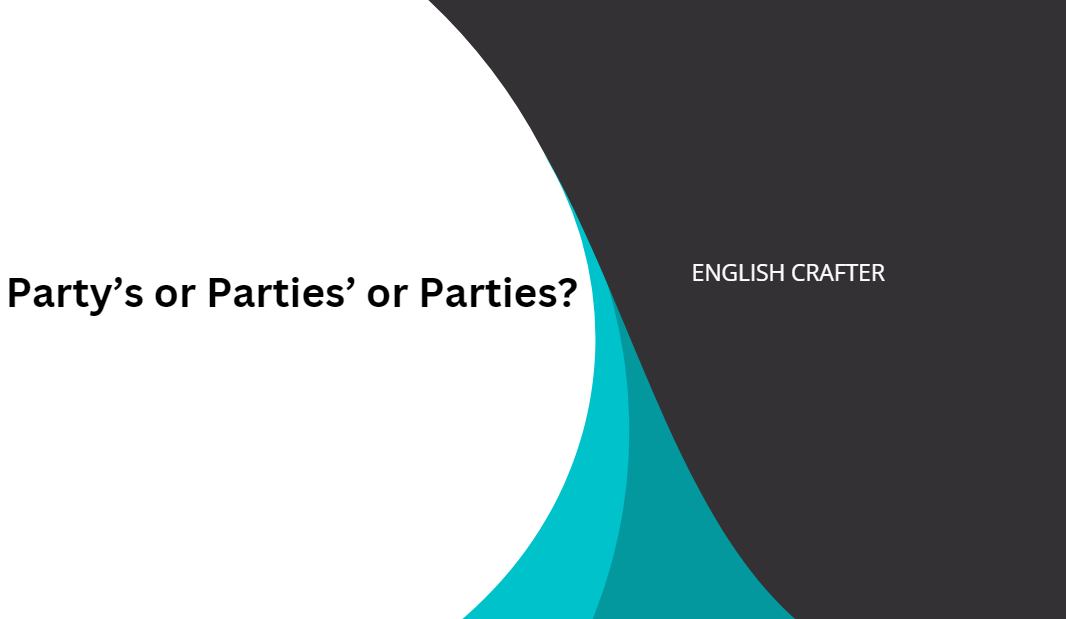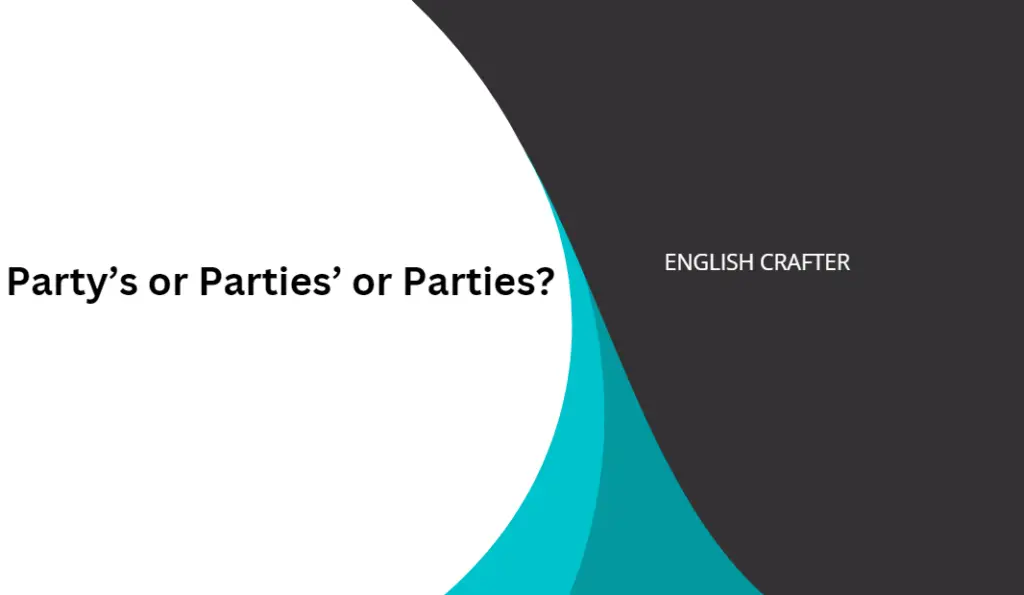Party’s or Parties’ or Parties?


The word party’s is the singular possessive version of party. For instance, “The party’s theme was a great success.” On the other hand, parties’ is the plural possessive, as in, “The hosts ensured all the guests enjoyed the parties’ festivities.” Additionally, the word parties is the standard plural form of party.
The chart below illustrates the different versions of the word party. Note that for pluralization, since party ends in a “y,” the plural is formed with “-ies.”
| Form | Example |
| Singular | Party |
| Plural | Parties |
| Singular Possessive | Partys |
| Plural Possessive | Parties’ |
Here are examples of the four forms in context:
- Singular: Organizing a surprise party requires careful planning.
- Plural: The city celebrates various parties during the holiday season.
- Singular possessive: The party’s decorations were elegant and festive.
- Plural possessive: The neighborhood parties’ themes were diverse and creative.
Using the wrong possessive or plural form can be costly in writing. Therefore, to avoid making mistakes with the different forms of the word party, read the remainder of this guide, where we explain each term in more detail.
Party’s
The term party’s is the singular possessive form of party. Consequently, it is used to show things that a single party possesses.
The singular possessive is often employed to describe specific elements of a party or its attributes. Examples include:
- The party’s venue was beautifully decorated.
- My cousin was in charge of the party’s entertainment.
- The party’s atmosphere was lively and cheerful.
Moreover, you can use the singular possessive to refer to non-physical aspects of a party, such as its theme and mood.
- The party’s theme was a masquerade ball.
- The party’s mood shifted from excitement to nostalgia.
- His speech contributed to the party’s overall sentiment.
In addition, you can use the phrase “party’s highlight” to emphasize a particular aspect or moment within a single event.
- The DJ’s performance was the party’s highlight.
- The fireworks display became the party’s higlhight.
Parties’
Parties’ is the plural possessive version of party, indicating that multiple parties possess or own something.
Given that parties do not own tangible items in the same way individuals might, the use of the plural possessive for parties may differ from other possessives.
The plural possessive of party is commonly employed when referring to hosts or organizers. Examples include:
- The parties’ hosts collaborated to create a memorable event.
- Our friends organized joint parties’ celebrations.
- The parties’ planners coordinated the schedule seamlessly.
Furthermore, it is used to describe areas or facilities designed for multiple parties.
- The convention center has excellent parties’ venues.
- The hotel offers customizable parties’ packages.
- The mall features a diverse range of parties’ spaces.
Moreover, the popular term party’s theme can also appear in plural form if referring to more than one party with distinct themes.
- The city’s festivals showcased parties’ themes from different cultures.
- Our community hosts parties’ theme contests every year.
Parties
Parties is the plural version of party, suitable for use in non-possessive sentences when referring to more than one party.
This plural form can be used in two ways:
- To indicate a specific number of parties:
- There were three parties in the neighborhood last night.
- Five parties collaborated to organize a city-wide celebration.
- To refer to parties collectively:
- Parties often contribute to the city’s vibrant culture.
- Many people enjoy attending parties during the summer.






